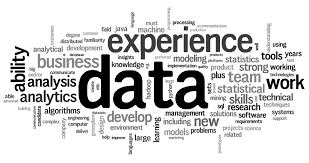It was an accident really. Didn’t set the intention or join a think tank problem solving session. There was a clear need for the work, and then came the obvious disconnect in critical players who held the keys but lacked the understanding. It was that moment when the message became more important for me than the data.
We spend our days submerged in the numbers. Data driven the moment we step out of bed in the morning, we busy our brains by calculating the details of our daily commute or performing ritualistic cost benefit analysis of each side bar conversation, each email, phone call, each report. The importance of data sets, frequencies, and trends is drilled into us early in our careers. Those oh-so-necessary numbers quickly show our successes and failures and send us into flurries of discussion around spending and performance and knowing your market. While we have developed a high degree of tolerance for this ongoing barrage of numbers-thinking, it can be exhausting. By the day’s end, we feel like we’ve lost more than just a few IQ points along the way. We’ve lost the purpose in our work.
The minute we get serious about telling our data stories in meaningful ways, an undercurrent jumps into play, and a fight ensues between what might look like productivity and what truly leads to sustainable solutions. The fix for this brain sucking, time eating, crunch-and-consume data cycle may be just a storybook away.
Simple idea really. Tell the message of the data so people find a reason to care about it. It’s called Social Math.
Social math is strong messaging that makes data comprehensible by connecting it to things we already understand. It uses data to inspire collaboration. A call to action, it is a method of storytelling that fluidly shares what is most important about the work. Speaking to our emotional connections, social math defies all practices taught in our business classes about distancing ourselves away from the personal.
Consider the impact of the following statement…
Americans dispose of 72 million plastic bottles annually.
As compared to...
Every year in the U.S., we throw away enough plastic bottles to circle the globe – five full times.
Strong messaging, story-telling, is personal. It asks us to prioritize issues into tasks that require clarity and demands immediate thought that leads to sustainable solutions.
The promotion of Mental Health in schools is another good example. Tough to argue that schools should be safe places of learning; however, we know that the rate of incidence in school violence, bullying, and suicide ideation continue to rise. So how do you move an entire educational community toward sustainable solutions? It’s not the data that matters; it’s the story behind and, better yet, in front of that data that gives us cause and helps us find purpose in our work. And it only has to take a few moments to tell, like this three minuter…
Data Story Book
Find the story, and you find the purpose.


